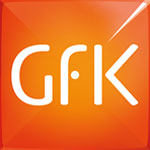German consumer climate strengthens

The continued upward momentum of the German economy and further recovery of the labour market have triggered a moderate rise in economic expectations and a strong increase in income expectations among Germans. The propensity to buy has also more than offset the decline seen in the previous month. The good general conditions, including the positive labour market developments and pleasing economic growth, have therefore again become more influential than "detrimental factors" such as Fukushima and the state of affairs in the Middle East and Greece.
Economic expectations: moderate rise
Having declined four times in a row over the past few months, economic expectations have risen by 4.2 points in June this year. At 50.3 points, the indicator is therefore almost 45 points higher than its corresponding level in the prior year.
This shows that Germans are responding positively to the recently published figures on economic development in Germany. The start of 2011 was characterised by very dynamic growth: according to reports from the Federal Statistical Office, real gross domestic product rose very strongly in the first quarter of 2011, recording an increase of 1.5% compared with the previous quarter and year-on-year seasonally adjusted growth of as much as 4.9%. On the basis of this good starting position, a number of economic research organisations and the German Bundesbank have announced a significant upward revision in their growth forecast for this year. Experts are now anticipating growth in real GDP of more than 3% in 2011, which means that the German economy will record similarly dynamic growth this year as in 2010, when the figure was 3.6%. These good growth prospects will go hand in hand with a further reduction in the number of registered unemployed people, which will fall well below the three million mark.
The favourable general economic conditions are eclipsing potential risks which arise from a possible worsening of the ongoing debt crisis and the threat of further rises in energy prices. This is also reflected in the Ifo Business Climate Index, which increased again in June for the first time since February.
Income expectations: marked increase
The most significant upward leap this month has been recorded by income expectations. Having climbed by 18.7 points, the indicator now stands at 44.6. As a result, the decline in income expectations up to May this year has been offset.
More optimistic economic expectations, and above all the ongoing positive development of the labour market, mean that more consumers are anticipating an improvement in their financial situation. Overall salary and wage levels have increased as a result of the rising number of employed people, and falling unemployment is strengthening the bargaining power of employees when it comes to negotiating larger pay raises. According to the Federal Statistical Office, real incomes were 2% higher on average in the first quarter of 2011.
This very positive development is further boosted by the fact that price pressure on consumers has not intensified any further of late. Correspondingly, consumers' price expectations hardly increased at all in June, and according to the Federal Statistical Office, inflation fell slightly to 2.3% in May, down from 2.4% in April.
Propensity to buy: improvement on already high level
Following a moderate decline in the previous month, the propensity to buy rose by 3.6 points in June, which compensated for the drop of 2.7 points in May. The indicator currently stands at 35.1 points.
Positive economic results and extremely pleasing labour market figures are improving consumers' planning security, which plays an important role particularly where larger purchases are concerned. Rising income expectations and the fact that price expectations have barely increased are also providing further important boosts to the indicator.
Consumer climate: return to a slight upward trend
The overall indicator is forecasting a value of 5.7 points for July, following a revised value of 5.6 points in June. The slight downward trend of the past few months has therefore come to an end. Very good general conditions in Germany, such as the economic growth and rising level of employment, are having a positive effect on consumers.
According to reports from the Federal Statistical Office, real private consumption expenditure rose by 1.9% year-on-year in the first quarter of 2011. Domestic demand is therefore making a major contribution to economic growth and fulfilling its role as an important growth vehicle this year.
Consumers are paying slightly less attention to ongoing risks to the economy, such as the debt crisis in the eurozone and high energy prices, in early summer this year.
The survey
These findings are extracts from the "GfK Consumer Climate MAXX survey", which is based on around 2000 consumer interviews conducted each month on behalf of the EU Commission. The report contains charts, forecasts and a detailed commentary regarding the indicators. In addition, the report includes information on proposed consumer spending in 20 different areas of the consumer goods and services markets. The GfK Consumer Climate survey has been conducted since 1980.
Source: GfK

The GfK Association was established in 1934 as a non-profit organization for the promotion of market research. Its membership consists of approximately 600 companies and individuals. The purpose of the Association is to develop innovative research methods in close cooperation with academic institutions, to promote the training and further education of market researchers, to observe the structures and developments in society, the economy and politics that play a key role in private consumption, and to research their effects on consumers. Survey results are made available to the membership. The GfK Association is a shareholder in GfK SE.
Go to: http://www.gfk.com





